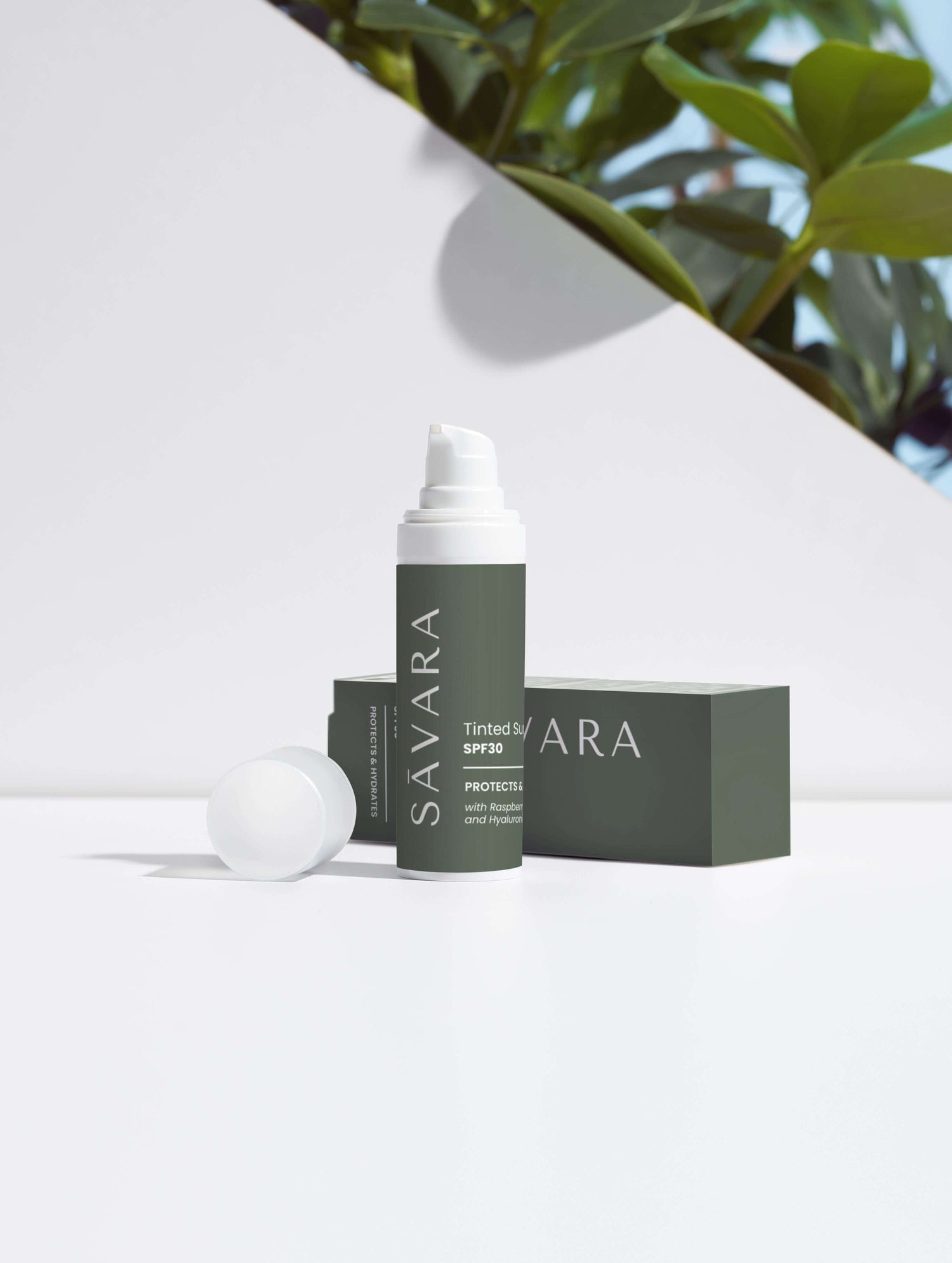As you journey through your 40s, your skin often reflects the challenges and triumphs of your life. That means fine lines, wrinkles and duller, less vibrant skin.
But what if you could maintain your skin's youthful vigor and resilience?
Peptides, the unsung heroes of skincare, offer a promising solution.
In this article, we explore peptides, their functions and benefits, how they compare to other skincare ingredients, and how you can incorporate them into your skincare routine for younger, healthier, more radiant-looking skin in your 40s.
What are peptides?
Peptides are short chains of amino acids, the building blocks of proteins essential for healthy skin.
They are responsible for your skin's natural resilience and strength. However, factors like aging, stress, and environmental aggressors can impede their production, leading to signs like dull skin, fine lines, and a texture resembling crazy paving.
In simpler terms, if your skin were a building, peptides would be the bricks.
They are vital in forming essential skin proteins like collagen and elastin.
Collagen gives your skin firmness and strength, while elastin provides elasticity, allowing it to stretch and bounce back.
As you reach your 40s, your body's natural production of these proteins slows down, leading to common signs of aging like wrinkles and sagging skin.
By applying peptides, you can encourage your skin to ramp up its production of these essential proteins, helping to keep your skin youthful and resilient.
What do peptides do?
Peptides are known as 'cell whisperers' for their ability to send signals to skin cells, prompting them to repair themselves.
Peptides:
-
Boost Collagen and Elastin Production: As natural collagen production declines with age, peptides signal the skin to produce more collagen and elastin, helping to reduce the appearance of fine lines and wrinkles and improving skin firmness.
-
Enhance Skin Barrier: Peptides strengthen your skin's barrier, enhancing its ability to retain moisture and protect against environmental damage.
-
Inhibit Glycation: Glycation is a process where sugar molecules in your body bind to proteins like collagen, weakening them and leading to premature aging.
Peptides help inhibit this process, protecting the collagen in your skin and maintaining its strength and elasticity.
-
Reduce Infections and Acne: Some peptides have antimicrobial properties, which can help protect the skin from harmful microorganisms, potentially reducing the risk of infections and acne.
- Improving Skin Texture and Tone: By promoting collagen production and strengthening the skin barrier, peptides can improve overall skin texture and tone, giving the skin a smoother, more radiant appearance.
Does your body naturally produce peptides?
Yes, your body naturally produces peptides and proteins by following instructions from your DNA.
It's like a recipe where DNA tells the body the order of amino acids (the building blocks) to create these peptides.
Why peptide levels decrease with age
As you get older, your body slows down in many ways, and this includes making less peptides.
It's a natural part of aging, just like getting gray hair.
This slowdown means less collagen and elastin (which make your skin stretchy and firm), leading to more wrinkles and saggy skin. It's like a factory slowing down production; the output (in this case, youthful skin) decreases.
While it's hard to measure exact peptide levels in your skin, the signs are visible as you age.
Scientists can see these changes under microscopes or through skin samples, but for most of us, it's something we notice in the mirror.
How do you get peptides?
Peptides can be derived from various natural sources such as rice, soya, pea, and seaweed or synthetically produced in labs.
These sources are rich in amino acids, the peptide's building blocks.
In skincare formulations, peptides are often included for their skin-rejuvenating properties.
In the context of skincare products, peptides can also be found in ingredients such as Hydroxyproline and Hexapeptide-11.
Hydroxyproline, a Botox-like peptide, is known for its effectiveness in targeting fine lines and wrinkles, making it a popular choice for anti-aging products.
Hexapeptide-11 is another peptide that contributes to enhancing skin elasticity and firmness.
Different types of peptides in women's skincare
- Signal Peptides: Stimulate the skin to produce more collagen.
- Carrier Peptides: Shuttle repairing molecules to sites of damage.
- Neurotransmitter-Inhibiting Peptides: Reduce wrinkles by blocking nerve-muscle communication.
- Enzyme-Inhibiting Peptides: Prevent collagen breakdown in the skin.
How do peptides differ from retinol?
While peptides and retinol are effective for skin improvement, they work differently.
Peptides stimulate cells to produce proteins like collagen, while retinol accelerates skin cell turnover.
Peptides are generally better tolerated by sensitive skin compared to retinol.
Are peptides safe to use in women's skincare?
Peptides are well-tolerated by the skin, making them suitable for those who cannot use harsher ingredients like acids or retinoids.
Do Dermatologists recommend peptides?
Dermatologists often recommend peptides, especially for their ability to improve skin texture and reduce signs of aging without causing irritation.
Peptides are a beneficial ingredient in anti-aging skincare regimens, suitable for a wide range of skin types, including sensitive skin.
Is it worth investing in peptide skincare?
Peptides are universally beneficial and suitable for various skin types.
However, they hold a special significance for women in their 40s who may be experiencing a natural decline in collagen and elastin production.
By incorporating peptides into your skincare regimen, you can effectively target these age-specific concerns, helping to preserve the skin's firmness, elasticity, and overall health.
How to incorporate peptides into your skincare routine
Incorporating peptides into your skincare routine is simple:
Identify peptide-enriched products
Look for products that list peptides among the top ingredients.
When searching for peptide-enriched skincare products, it's important to recognize that peptides may not always be listed simply as 'peptides' on ingredient labels.
Look for specific names, which include:
- Hydroxyproline
- Hexapeptide-11
- Matrixyl (including Matrixyl 3000 and Matrixyl Synthe'6)
- Argireline (Acetyl Hexapeptide-8)
- Collagen Peptides
- Palmitoyl Tripeptide-1
- Palmitoyl Tetrapeptide-7
- Palmitoyl Pentapeptide-4
- Copper Tripeptide-1
- Acetyl Octapeptide-3
- Pentapeptide-18
- Tripeptide-1
These are all various forms of peptides, each offering unique skin benefits.
Additionally, ensure peptides are listed among the top ingredients, indicating a higher concentration in the product.
In our serum, we use Hydroxyproline and Hexapeptide-11.
Hydroxyproline:
Hydroxyproline is a crucial component in collagen, one of the primary proteins in the skin that provides structure and elasticity.
In skincare, Hydroxyproline is valued for stimulating collagen production, which is crucial for maintaining youthful and resilient skin.
By opting for a serum containing Hydroxyproline, you:
-
Boost collagen synthesis: Encourages the skin to produce more collagen, helping to reduce the appearance of fine lines and wrinkles.
-
Improve skin texture: Aids in enhancing the overall texture and firmness of the skin, giving it a smoother and more youthful appearance.
- Support skin repair: This contributes to the skin's natural healing process, contributing to healthier and more resilient skin.
Hexapeptide-11:
Hexapeptide-11 is a peptide known for its firming and elasticity-enhancing properties.
It's particularly beneficial for mature skin, which often experiences a loss of suppleness and firmness. In your serum, Hexapeptide-11 contributes to:
-
Enhancing Skin Elasticity: Helps improve the skin's elasticity, making it appear firmer and tauter.
-
Anti-Aging Effects: Targets the visible signs of aging by helping to firm up the skin, thereby reducing the appearance of sagging and wrinkles.
- Strengthening Skin Barrier: This may aid in reinforcing the skin's natural barrier, offering better protection against environmental stressors and moisture loss.
By combining Hydroxyproline and Hexapeptide-11, you get a powerful blend that addresses key concerns of aging skin, such as loss of firmness, elasticity, and the appearance of fine lines.
This makes it particularly suitable for women in their 40s who want to maintain a youthful and healthy complexion.
Application:
For optimal results, apply peptide products to clean, damp skin. Moisture on the skin can help peptides penetrate more effectively.
Gently massage the product in upward strokes until fully absorbed.
This is especially beneficial after cleansing or showering when your skin is still moist.
Combine with other ingredients:
Peptides work wonderfully in tandem with other skincare ingredients. Pairing them with hydrating agents like hyaluronic acid can enhance skin hydration and plumpness.
Hyaluronic acid, found in many skincare products, including our serum, helps to draw moisture into the skin, complementing the collagen-boosting and firming effects of peptides.
Antioxidants are another great pairing with peptides; they help to protect the skin from environmental damage, while peptides work on repairing and rejuvenating the skin from within.
Key takeaway:
Peptides are like messengers that tell your skin cells to behave more youthfully, promoting a firmer, smoother, and more resilient complexion.
Their ability to target multiple signs of aging makes them a powerful ally in maintaining youthful, resilient skin, especially in your 40s.
Now that you've explored the remarkable world of peptides and their transformative effects on the skin, why not experience these benefits firsthand?




